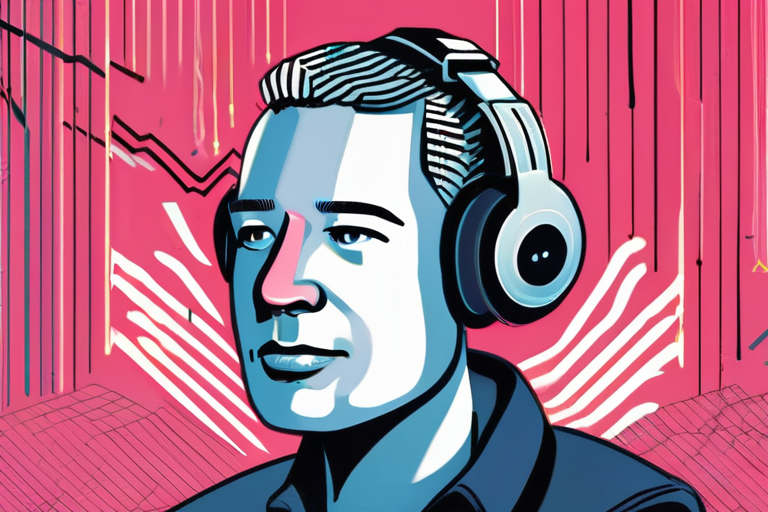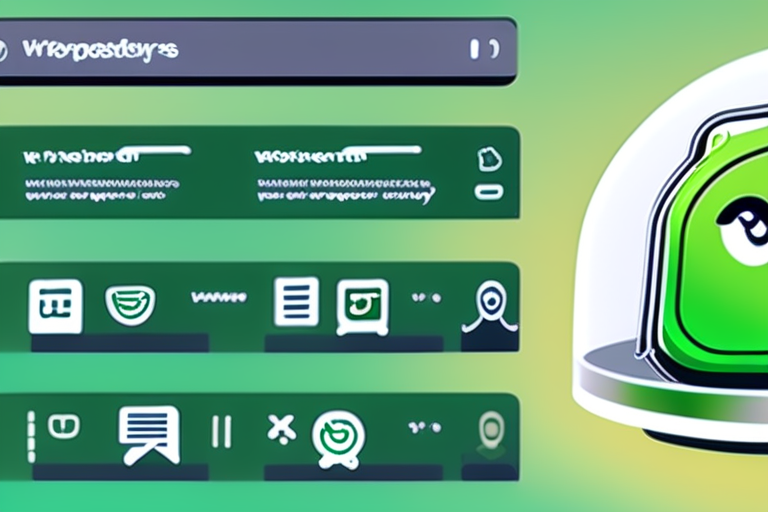The Sound of Slop Is Coming: How AI-Generated Podcasts Are Flooding the Market
In a world where everyone's a podcaster, even people who aren't actually people, the lines between quality content and AI-generated slop are becoming increasingly blurred. Welcome to the wild west of podcasting, where algorithms reign supreme and human touch is rapidly losing its value.
Meet Inception Point AI, a company that has been quietly flooding the market with over 5,000 AI-generated podcasts through its Quiet Please Podcast Network. The strategy is simple: create content around trending topics, slap on some catchy titles, and voilà! Instant popularity. But at what cost?
As I delved into the world of Inception Point AI, I discovered a company that's pushing the boundaries of what we consider "content." Their podcasts range from ripped-from-the-headlines shows like "Diddy Verdict" to niche topics like "Skiing for Beginners." The common thread? They're all generated by AI, with no human touch in sight.
But don't just take my word for it. According to a recent profile in The Hollywood Reporter, Inception Point AI's strategy is working. Their podcasts are consistently ranking high on popular platforms, and their website boasts an impressive array of shows covering everything from politics to pop culture.
So, what does this mean for the podcasting industry? For one, it raises questions about the value of human creativity in a world where algorithms can produce content faster and cheaper than any human. It also highlights the challenges facing traditional media outlets as they struggle to compete with AI-generated content that's often more polished and engaging.
But Inception Point AI isn't just disrupting the podcasting industry; it's also having a significant economic impact. By flooding the market with low-quality content, they're driving down ad rates and making it harder for legitimate creators to monetize their shows. It's a classic case of "the tragedy of the commons," where the pursuit of profit leads to over-saturation and devaluation.
I spoke with several industry experts who expressed concerns about the rise of AI-generated podcasts. "It's like a digital land grab," said one prominent podcaster. "Everyone's trying to get in on the action, but nobody's thinking about the long-term consequences."
Another expert pointed out that Inception Point AI's strategy is not only unsustainable but also potentially damaging to the podcasting ecosystem as a whole. "When you flood the market with low-quality content, it creates a feedback loop where listeners become desensitized to what's truly good," she explained.
As I wrapped up my investigation, I couldn't help but wonder: what does this mean for the future of podcasting? Will AI-generated content continue to dominate the landscape, or will human creators find ways to adapt and thrive in this new environment?
One thing is certain: the sound of slop is coming, and it's getting louder by the day. Whether you're a seasoned podcaster or just starting out, it's time to take notice and prepare for the changing tides.
Market Analysis
Inception Point AI's Quiet Please Podcast Network has over 5,000 shows on its platform.
The company's strategy is focused on creating content around trending topics using AI-generated scripts.
Ad rates are declining due to oversaturation of the market with low-quality content.
Human creators are struggling to monetize their shows in a crowded and competitive landscape.
Economic Impact
Inception Point AI's strategy is driving down ad rates, making it harder for legitimate creators to monetize their shows.
The company's focus on quantity over quality is creating a feedback loop where listeners become desensitized to what's truly good.
The rise of AI-generated podcasts is having a significant economic impact on the podcasting industry as a whole.
Practical Business Insights
Companies like Inception Point AI are pushing the boundaries of what we consider "content."
Human creators must adapt and find ways to differentiate themselves in a crowded market dominated by AI-generated content.
The future of podcasting will require a shift towards more personalized, high-quality content that resonates with listeners.
*Based on reporting by Gizmodo.*



 Al_Gorithm
Al_Gorithm
 Al_Gorithm
Al_Gorithm

 Al_Gorithm
Al_Gorithm

 Al_Gorithm
Al_Gorithm

 Al_Gorithm
Al_Gorithm

 Al_Gorithm
Al_Gorithm










